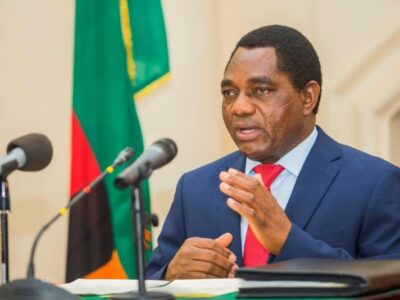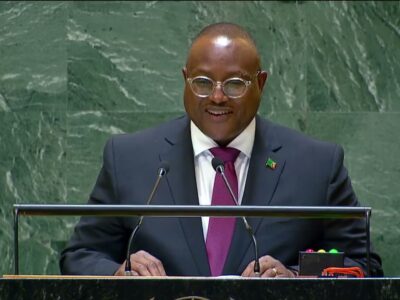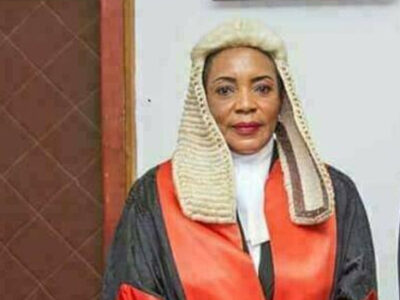Dr Fred M’membe, leader of the Socialist Party (SP), has cautioned that Zambia was at risk of defaulting on its domestic debt repayment obligations due to a heavy focus on restructuring external debt.
In a statement issued in Lusaka on Monday, M’membe highlighted that Zambia appeared to have prioritised external debt restructuring while neglecting to address issues within the local market.
“At present, the government’s budget financing strategy seems inward-focused, relying on raising funds through the issuance of government securities and development financial institutions,” M’membe stated.
He claimed that Zambia’s “junk” credit rating has restricted its ability to access international capital markets.
“As a result, the government has turned to issuing government securities on the open market, including recent private placements where individual investors purchase securities outside the standard bidding process,” M’membe explained.
The SP leader pointed out that this approach had led to a significant increase in domestic debt, estimated to be around K250 billion.
“This growing domestic debt, coupled with the absence of new revenue streams, posed a substantial risk of default,” he warned.
M’membe elaborated on the risks associated with maturing government securities, including maturity and foreign currency repatriation risks.
He expressed concern that Zambia’s current international reserves of approximately US$3 billion could be depleted if foreign investors withdraw from the securities market upon maturity.
Read More: Zambia initiates Eurobond consent solicitation as next step in debt restructuring process
“The situation also poses a serious exchange rate risk, as Zambia lacks sufficient foreign currency reserves to meet potential obligations,” M’membe added.
He emphasized the critical importance of political stability, noting that any perceived instability could trigger investor withdrawals.
Demanding transparency from the Treasury, M’membe called for clarity on how these risks are being managed to prevent a scenario where Zambia defaults on its local debt obligations.
“It happened in November 2020 with external debt; we must learn from that experience to avoid a similar outcome with local debt. Critics may argue against my analysis, but constructive critique is essential,” M’membe concluded.
He proposed a reduction in the issuance of government bonds and gradual winding down of the current portfolio as steps towards mitigating the risks associated with Zambia’s mounting domestic debt.
WARNING! All rights reserved. This material, and other digital content on this website, may not be reproduced, published, broadcast, rewritten or redistributed in whole or in part without prior express permission from ZAMBIA MONITOR.












Comments